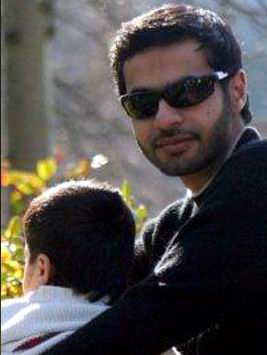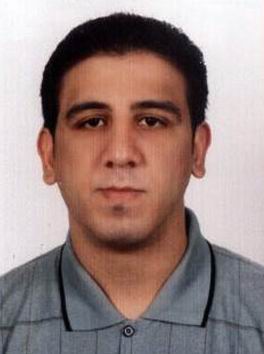By Salma Abdelaziz
October 10, 2010
(CNN) — Across the world blogging has become a way of spreading your message but for some that message can cost them their freedom.
From Iran to Vietnam, bloggers take risks going online to spread news and views authorities have no wish to see or hear.
In Egypt, Wael Abbas is an award wining blogger and international human rights activist recognized for his work by institutions such as the Human Rights Watch and Reporters without Borders.
His blog Misr Digital which translates as “Egyptian Awareness” gained worldwide attention for video posts of torture sessions in prisons, mass sexual harassment of women, and police brutality in the streets of Egypt.
“In oppressive regimes you get both sides of the story from bloggers, who can tackle taboo issues such as torture, homosexuality, and corruption. Bloggers are a necessity in countries where media is not free; they are the main source of free information,” Abbas said.
But many governments do not allow bloggers to operate freely.
“Bloggers in Egypt face many challenges especially those who are out on the street covering protests and taking pictures. It can start with confiscating your camera and can go as far as police officer beatings in the streets,” Abbas said.
Earlier this year, Abbas was charged with “providing a telecommunications service to the public without permission”.
The Egyptian government did not return calls to CNN when asked for comment on its attitude towards bloggers and Abbas’ allegations.
T. Kumar, Advocacy Director Asia & Pacific at Amnesty International USA, said that due to countless restrictions some bloggers are forced to become what he terms “underground bloggers.”
“Restrictive countries want total control over information. They do not want any independent information that is not approved by the government to be disseminated to the public. Bloggers are targeted because they challenge this authority by acting independent of traditional media,” Kumar told CNN.
In some parts of the world maintaining an active blog can lead to consequences ranging from police harassment to imprisonment.
In addition to legal obstacles bloggers may face technical barriers such as site blocking, and Internet outages.
Wael Abbas says he was held in prison last year for 15 hours without charge. Since the arrest, he says he has endured harassment designed to discourage him from traveling abroad.
“Every single time for the past year I arrive in the airport I go to the passport check, my name pops up on the system, and my passport is taken. I often sit for several hours and wait until my passport is returned,” Abbas said.
He said Egyptian bloggers were also defiant after Kareem Amer in 2007 became the first blogger in Egypt to be convicted for his online publications. “We knew they were targeting Kareem Amer to make an example of him to other bloggers, and we refused to let them destroy us.”
Kumar said that arresting a blogger can be a powerful fear tactic for authorities wanting to silence opposition or deter Internet users from publishing anti-government material online.
“The blogging community in restrictive countries has been affected enormously by these arrests. They have to blog under the radar fearful of arrest. It also affects what bloggers publish, and they may chose to be less critical for fear of being targeted by the government,” Kumar said.
According to Kumar, governments often keep tabs on bloggers by setting up Internet police units to enforce restrictions, report on anti-government activity, and monitor Internet cafes. This is a huge obstacle for bloggers in many developing countries who depend on internet cafes because they do not own personal computers or internet subscriptions.
Kumar said fear has caused some bloggers to abandon the activity and stifled the growth of social media.
But Abbas said many bloggers carry on defying government restrictions as they try to help reach a freer society.

Pham Minh Hoang is a 55-year-old French Vietnamese blogger and methematics teacher. According to Reporters Without Borders, Hoang was detaining by Vietnamese authorities on August 13, 2010, and has been charged with “activities aimed at overthrowing the government” and membership in a “terrorist organization.”

Hossein Derakhshan is a Canadian-Iranian blogger and activist. On September 28, an Iranian court sentenced him to almost 20 years in prison. The charges against Derakhshan include “collaborating with enemy states, creating propaganda against the Islamic regime, insulting religious sanctity, and creating propaganda for anti-revolutionnary groups.”

Ali Abdulemam is a leading Bahraini blogger and Global Voices Advocacy author. According to Reporters Without Borders, Abdulemam was arrested by the Bahraini National Security Agency on September 4. Bahraini authorities have charged the blogger with spreading “false news which has compromised national security.”

Tal al-Mallohi is a 19-year-old Syrian high school student and blogger. According to Human Rights Watch, al-Mallohi was detained by Syria’s security services on December 27, 2009, and has been held for the past nine months. Since her arrest, the security services have not allowed her familly to communicate with her and have not offered any explanation for the arrest.

Abdel Kareem Nabil Suleiman, known as Kareem Amer, is a 26-year-old Egyptian blogger and free speech advocate. He was sentenced to four years in prison by an Egyptian court on February 22, 2007. Amer was convicted of charges of “spreading information disruptive of public order and damaging to the country’s reputation, incitement to hate islam and defaming the President of the Republic.”
http://edition.cnn.com/2010/TECH/web/10/09/detained.bloggers/index.html?hpt=C2





